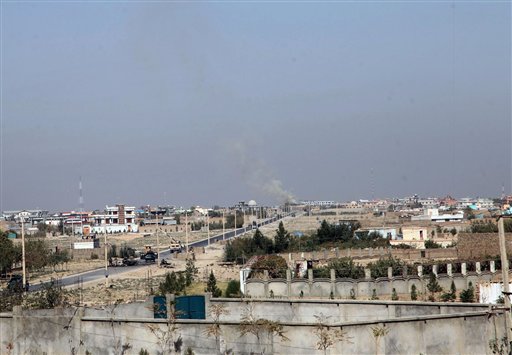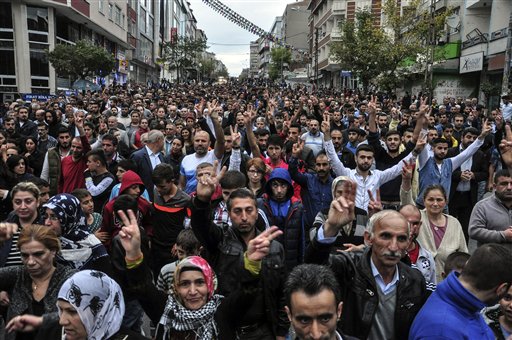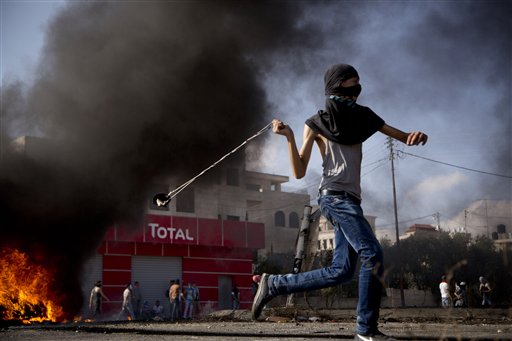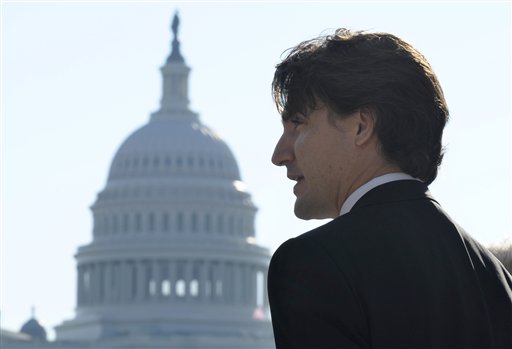October 2015 Current Events: World News

U.S. News | Business News | Disasters & Science News
Here are the key events in world news for the month of October 2015.
Prime Minister Koirala Resigns After Nepal Passes New Constitution (Oct. 2): Prime Minister Sushil Koirala announces he will submit his resignation to make room for a successor. A new prime minister is a provision of Nepal's new democratic Constitution announced and adopted by President Ram Baran Yadav on Sept. 20. Of the new Constitution, Koirala says in a speech to Parliament, "According to my public commitment and the provisions of the constitution I will ask the respected president to take forward the constitutional process to choose the new prime minister." It is widely expected that Chairman of the Communist Party of Nepal, Khadga Prasad Sharma Oli, will become the next prime minister. The decision will be made soon. The new prime minister must be elected by Parliament within a week of the first House session held since the adoption of the new constitution.
U.S. Airstrike Hits Hospital in Afghanistan (Oct. 3): An airstrike hits a hospital run by Doctors Without Borders in Kunduz, Afghanistan. Twenty-two people are killed, including 12 hospital staff members and seven patients. Soon after the incident, the U.S. military releases a statement confirming an airstrike aimed at Taliban militants in Kunduz, but that "there may have been collateral damage to a nearby medical facility." The United Nations and other international organizations condemn the incident and call for an investigation. (Oct. 5): With the hospital badly damaged, Doctors Without Borders announces it is leaving Kunduz, a city in much need of medical assistance.

Smoke rises from Kunduz, Oct. 2015
Source: ASSOCIATED PRESSMultiple Bombings Kill Dozens in Turkey's Capital (Oct. 10): Two separate explosions kill nearly 100 people during a peace rally in Ankara, Turkey's capital. Hundreds more are wounded in what is the deadliest attack in Turkey in years. The two explosions happen 50 meters from each other and are almost simultaneous, happening just seconds apart near Ankara's main train station. No one immediately claims responsibility for the bombings. However, Prime Minister Ahmet Davutoglu says that there are "strong signs" that suicide bombers have been behind the attack. The attacks come at what is already a tense time in Turkey, which has taken in more refugees than any other country from its war-torn neighbor Syria. Plus, the renewed fight with the Kurdish rebels in recent months has killed hundreds. After the explosions, protesters take to Ankara's streets to express their outrage over the bombings. (Oct. 12): Prime Minister Davutoglu says that one of the suicide bombers is close to being identified.

Protesters in Ankara after the bombings, Oct. 2015
Source: ASSOCIATED PRESS-
Israelis and Palestinians Experience Worst Outbreak of Violence in Years (Oct. 15): During the first two weeks of Oct. 2015, 32 Palestinians and seven Israelis are killed in what was the biggest spike in violence the area has seen in recent years. The violence breaks out in part over what the Palestinians see as increased encroachment by Israelis on the al-Aqsa mosque on the Temple Mount in Jerusalem, a site important to both Muslims and Jews. However, the violence quickly spreads beyond Jerusalem. (Oct. 16): At the request of council member Jordan, the United Nations Security Council holds a meeting to discuss the area's increasing unrest. France proposes that an international observer be placed at the al-Aqsa mosque, but that idea is rejected by Israel. Meanwhile, U.S. Secretary of State John Kerry calls for Israeli and Palestinian leaders to meet and agree on a plan to stop the violence.

Palestinian hurls a stone in clashes with Israeli troops,
near Ramallah, West Bank, Oct. 2015
Source: AP Photo/Majdi Mohammed -
Trudeau's Liberal Party Pulls off Upset Election in Canada (Oct. 19): In Canada's parliamentary elections, Justin Trudeau's Liberal Party pulls off an upset, stunning Prime Minister Stephen Harper and his Conservative Party. The Liberal Party takes 39.5% of the vote, 184 out of 338 seats, while Harper's Conservative Party takes 31.9% of the vote, or 99 seats. Election observers view the outcome as a result of a public that grew tried of Harper's heavy-handed conservative focus during his nine year reign. Trudeau succeeds Harper as prime minister 47 years after Pierre Elliott Trudeau, his father, held the office. The 43 year-old Trudeau also becomes the country's second-youngest prime minister and the first to follow a parent into the position.

Justin Trudeau during a visit to Washington, D.C., 2013
Source: AP Photo/Susan Walsh -
China Ends One-Child Policy After Decades (Oct. 29): China announces it will now allow all married couples to have two children as a way to offset the country's aging workforce. The announcement puts an end to China's unpopular one-child policy, which has been in effect for 35 years. At the advice of scholars, China has already relaxed the one-child policy in recent years, allowing more families to have two kids when parents meet certain criteria. The announcement states that the country will "fully implement a policy of allowing each couple to have two children as an active response to an aging population." However, no details of how or when the new policy will be implemented have been shared.







